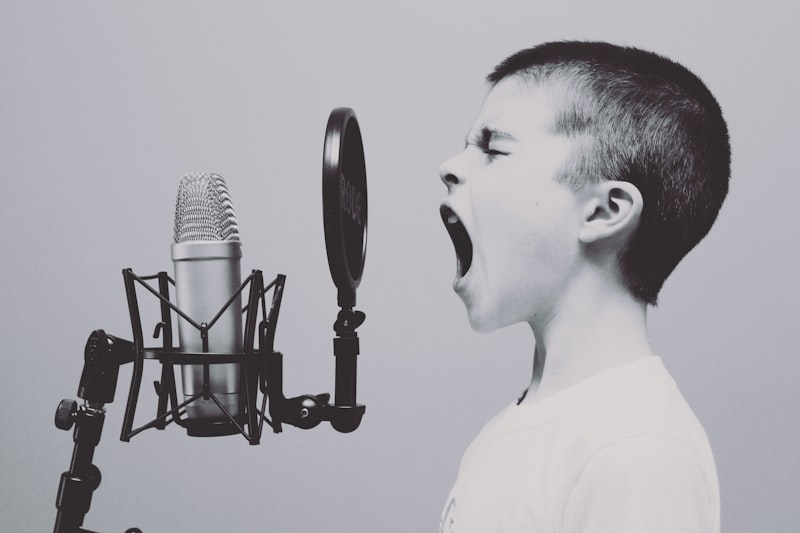Have you ever experienced the ultimate power of music to uplift your spirits and transform your mood? Music therapy, a lesser-known yet incredibly effective form of treatment, holds the key to enhancing your overall wellbeing in ways you might not have imagined. Let’s explore how music therapy can make a profound impact on your life.
Imagine this: you’re feeling stressed after a long day at work. Instead of reaching for distractions, you plug in your favorite tunes. Almost instantly, you feel a wave of relaxation wash over you. This isn’t just a coincidence; it’s the therapeutic effect of music in action.
Music therapy utilizes the harmonious vibrations and rhythms of music to address various emotional, cognitive, and social needs. Whether you’re battling anxiety, depression, or simply seeking to improve your focus, music therapy offers a personalized approach. Through structured sessions led by trained therapists, individuals can explore different genres and sounds to discover what resonates best with their emotional state.
But how does it work exactly? Picture your mind as a symphony, with each note representing a different aspect of your wellbeing. When you listen to music that resonates with you, these notes align, creating a sense of harmony within. This synchronization isn’t just metaphorical; studies have shown that music therapy can reduce stress hormones, lower blood pressure, and even strengthen the immune system.
Moreover, music has a unique ability to evoke memories and emotions deeply rooted within us. For those experiencing memory loss or cognitive decline, familiar melodies can awaken forgotten moments, sparking connections that transcend words.

In essence, music therapy isn’t merely about listening; it’s about harnessing the transformative power of sound to heal and rejuvenate. Whether you’re struggling with mental health challenges or simply seeking a holistic approach to wellness, consider the profound impact that music therapy can have on your journey towards better health.
Harmonies of Healing: Exploring the Science Behind Music Therapy
Imagine music as a gentle healer, its vibrations resonating through our being, touching places words cannot reach. From ancient civilizations to modern clinics, music has been revered for its therapeutic powers. But how does it work? The magic lies in its ability to synchronize brainwaves, regulate emotions, and even alleviate physical pain.
At its core, music therapy is tailored to individual needs. It could be the soothing strains of classical music easing anxiety or the upbeat tempo of pop tunes encouraging movement and rehabilitation. Each note, each beat, strategically chosen to evoke specific responses, from relaxation to motivation, from release to restoration.
Scientifically, studies have shown that music activates multiple areas of the brain, triggering neurochemical processes that enhance mood and cognitive function. It’s like a symphony of neurotransmitters orchestrating a harmonious balance within us. Moreover, music therapy isn’t limited to passive listening; it can involve active participation through singing, playing instruments, or even composing, empowering individuals to express and heal through their own musical journeys.
Metaphorically speaking, music therapy is akin to a gentle rain that nourishes parched lands, revitalizing and rejuvenating the spirit. It’s a language spoken universally, transcending barriers of age, culture, and ability. In hospitals, schools, nursing homes, and rehabilitation centers, its echoes are heard, bringing solace to those in pain, hope to the weary, and joy to the despondent.
From Notes to Serenity: Music Therapy’s Impact on Mental Health
Imagine a scenario: you’re feeling overwhelmed by stress, your mind racing with thoughts that refuse to quiet down. Then, you listen to a soothing piece of music. Almost magically, you feel a sense of calm wash over you. This isn’t just a coincidence; it’s the essence of music therapy at work.
Music therapy is not about simply listening to music; it’s a structured therapeutic process where trained professionals use music interventions to address individual goals. Whether it’s reducing anxiety, improving communication, or enhancing emotional expression, music therapy offers a unique pathway to healing.

One of the key ways music therapy works is through its direct effect on our emotions. Have you ever noticed how a particular song can instantly change your mood? Music has a direct link to our limbic system, the part of the brain responsible for emotions. By carefully selecting and playing music tailored to a person’s emotional needs, therapists can help regulate mood and reduce symptoms of depression and anxiety.
Moreover, music therapy isn’t limited to passive listening. It often involves active participation, such as singing, playing instruments, or even composing music. This active engagement not only provides a creative outlet but also fosters a sense of accomplishment and self-esteem.
For individuals struggling with trauma or mental health disorders, verbal expression of emotions can be challenging. Here’s where music therapy shines: it offers a non-verbal way to process feelings and experiences. Through music, patients can communicate and explore their emotions safely and without judgment.
Unlocking Inner Peace: The Power of Music Therapy Revealed
Have you ever experienced that magical moment when a song comes on and suddenly, everything feels right with the world? That’s the incredible power of music therapy at work. It’s not just about enjoying a melody; it’s about how music can profoundly impact our emotions, our mental state, and even our physical well-being.
Music therapy is more than just a trendy concept—it’s a scientifically backed method that uses music to heal and soothe. Whether you’re dealing with stress, anxiety, or even chronic pain, music therapy offers a therapeutic approach that is accessible to everyone. Unlike traditional treatments, music therapy engages both sides of the brain, enhancing cognitive function and promoting relaxation.
Imagine a symphony of notes washing over you like a gentle wave, easing tension and bringing clarity to your mind. That’s the essence of what music therapy can achieve. It taps into our emotions, helping us express feelings that words sometimes fail to convey. From classical compositions to modern beats, the versatility of music ensures there’s a melody for every mood and every moment.

Studies have shown that listening to music activates the brain’s reward centers, releasing dopamine and fostering a sense of pleasure and contentment. This natural high not only boosts our mood but also reduces levels of cortisol, the stress hormone. In essence, music becomes a powerful tool in our arsenal for combating the pressures of daily life.
Furthermore, music therapy is adaptable to various settings—from hospitals and clinics to schools and community centers. It’s used to support individuals of all ages, from children with developmental disorders to elderly patients recovering from strokes. The therapeutic benefits extend beyond mental health, influencing physical rehabilitation and even enhancing social skills.
In today’s fast-paced world, finding moments of tranquility can seem like a luxury. However, with music therapy, achieving inner peace becomes attainable through the simple act of listening. Whether you’re actively participating in creating music or simply immersing yourself in its rhythms, the therapeutic effects are profound and lasting.
Explore the transformative power of music therapy for yourself and discover how melodies can unlock doors to inner peace and well-being. Let the harmonies resonate within you, guiding you on a journey of self-discovery and healing.
Melodies as Medicine: How Music Therapy Reduces Stress and Anxiety
Have you ever noticed how a favorite song can instantly change your mood? It’s not just a coincidence – music has a profound impact on our emotional well-being. Music therapy, specifically designed to harness this power, is gaining recognition for its ability to reduce stress and anxiety.
Imagine a stressful day at work. Your mind races with deadlines and pressures. Then, you plug in your headphones and play a soothing melody. Almost magically, the tension starts to melt away. This therapeutic effect of music is not just anecdotal; it’s backed by science.
Studies have shown that listening to music can lower cortisol levels, the hormone responsible for stress. It acts like a natural mood regulator, helping to calm the nervous system and promote relaxation. In clinical settings, music therapy is used to treat various conditions, from insomnia to chronic pain management.
What makes music therapy unique is its adaptability. Therapists tailor playlists to individual needs, selecting genres and rhythms that resonate with patients. For someone struggling with anxiety, gentle classical music or ambient sounds might provide comfort. For others, upbeat tunes can boost energy and lift spirits.
Beyond its immediate effects, music therapy also fosters emotional expression and social interaction. It’s not uncommon to see patients engage more openly during sessions or find solace in lyrics that mirror their experiences.
In essence, music therapy is more than just listening; it’s a holistic approach to healing. By harnessing the power of melodies, therapists empower individuals to manage stress and anxiety naturally. So, next time you feel overwhelmed, consider turning to your favorite tunes – they might just be the medicine you need.
This article aims to capture the reader’s interest through engaging language and personal insights into the benefits of music therapy for reducing stress and anxiety.
Rhythms of Recovery: Music Therapy’s Role in Rehabilitation
Music therapy isn’t just about melodies and harmonies; it’s a powerful tool that can aid in the recovery journey of individuals undergoing rehabilitation. Imagine a scenario where traditional methods meet the soothing sounds of music to create a unique healing experience. That’s the essence of music therapy and its impact on rehabilitation.
In essence, music therapy involves using music in a therapeutic context to address physical, emotional, cognitive, and social needs of individuals. Whether someone is recovering from a physical injury or dealing with mental health challenges, music therapy offers a holistic approach to healing. It taps into the innate connection between music and our brains, stimulating neural pathways and promoting overall well-being.
One of the key benefits of music therapy in rehabilitation is its ability to enhance motor skills and coordination. Through rhythmic exercises and musical activities, patients can improve their physical movements and regain control over their bodies. This is particularly beneficial for individuals recovering from strokes or accidents where motor function has been impaired.
Moreover, music has a profound effect on our emotions. It can uplift spirits, reduce anxiety, and alleviate stress. In a rehabilitation setting, this emotional support plays a crucial role in the recovery process. Whether it’s through listening to calming tunes or actively participating in music-making, patients can find emotional release and motivation to continue their journey towards wellness.
Beyond the physical and emotional aspects, music therapy also stimulates cognitive abilities. It can improve memory, attention, and speech skills, which are often affected by neurological conditions or brain injuries. By engaging in musical activities that challenge cognitive functions, patients can experience cognitive rehabilitation in an enjoyable and stimulating way.

Furthermore, music therapy fosters social interaction and communication. Group music sessions encourage patients to connect with others, share experiences, and build relationships in a supportive environment. This social engagement not only enhances mood but also improves overall mental health, promoting a sense of belonging and community among participants.
In summary, music therapy is a multifaceted approach to rehabilitation that harnesses the power of music to promote healing and well-being. From enhancing motor skills and emotional resilience to stimulating cognitive functions and fostering social connections, its impact is profound and transformative. As more research supports its benefits, music therapy continues to gain recognition as an integral part of rehabilitation programs worldwide.
Frequently Asked Questions
Are there specific conditions or populations that benefit most from music therapy?
Learn about the specific conditions and populations that benefit most from music therapy, exploring its targeted effects and applications.
How does music therapy improve emotional expression and communication?
Discover how music therapy enhances emotional expression and communication by leveraging rhythmic patterns and melodic structures to stimulate neural pathways associated with emotions and language. Through therapeutic sessions, individuals can develop heightened self-awareness and social skills, fostering a deeper connection with their emotions and improving verbal and non-verbal communication.
What is music therapy and how does it benefit mental health?
Discover how music therapy enhances mental health through therapeutic techniques that harness music’s emotional and cognitive effects. Explore its positive impacts on stress reduction, mood regulation, and overall well-being, making it a powerful complement to traditional therapies.
Can music therapy help reduce stress and anxiety?
Discover how music therapy can effectively reduce stress and anxiety through targeted techniques and soothing rhythms.
What types of music are used in therapy sessions?
Explore how various types of music, including classical, ambient, and therapeutic genres, are utilized to promote relaxation, reduce anxiety, and enhance emotional well-being in therapy sessions. Discover the therapeutic benefits of music tailored to individual needs and preferences.


